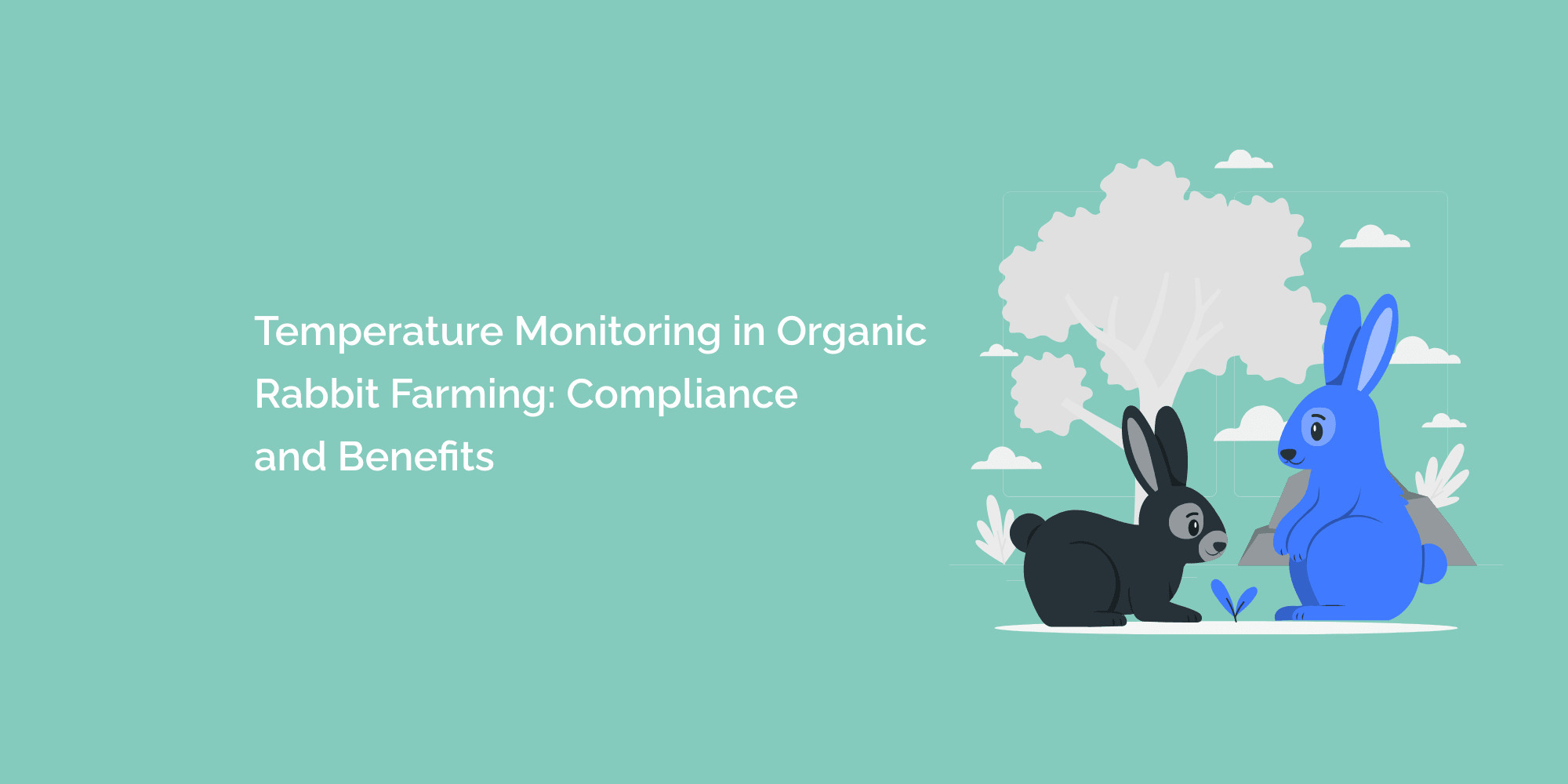Organic rabbit farming emphasizes ethical and sustainable practices that prioritize the well-being of the animals and the environment. In this regard, temperature monitoring plays a pivotal role in ensuring the comfort and health of rabbits raised in organic farms. Maintaining a stable and optimal temperature is essential for the overall productivity and welfare of the rabbits.
In this comprehensive blog, we will explore the significance of temperature monitoring in organic rabbit farming, discuss compliance requirements for organic certification, and highlight the numerous benefits it offers to both the rabbits and the farmers.
The Importance of Temperature Monitoring in Organic Rabbit Farming
Understanding Rabbit Sensitivity to Temperature Changes
Rabbits are highly sensitive animals that are vulnerable to temperature fluctuations. They are most comfortable within a specific temperature range, and deviations from this range can result in stress, reduced reproductive performance, and even fatalities. Temperature monitoring helps farmers identify potential issues early on and take timely actions to maintain a conducive environment for the rabbits.
Impact on Health and Productivity
Inappropriate temperatures can lead to various health problems in rabbits, such as respiratory issues, heat stress, and compromised immune systems. Maintaining an optimal temperature ensures the overall health of the animals and enhances their growth, reproduction, and productivity, which is vital for organic rabbit farming.
Compliance with Organic Certification Standards
Temperature Monitoring as an Organic Farming Requirement
To obtain organic certification, rabbit farmers must adhere to strict guidelines and standards that prioritize the welfare of the animals. Temperature monitoring is a crucial aspect of these requirements, and organic farmers must demonstrate a commitment to maintaining proper temperature levels within their barns.
Specific Temperature Guidelines for Organic Rabbit Farming
Different organic certification bodies may have slightly different temperature guidelines for rabbit farming. We will explore the general temperature range recommended for organic rabbit farming and how farmers can comply with these guidelines effectively.
Best Practices for Temperature Monitoring in Organic Rabbit Farming
Selecting Suitable Temperature Monitoring Equipment
Choosing the right temperature monitoring equipment is crucial for accurate readings and reliable data collection. This section will discuss the various types of temperature sensors available, their pros and cons, and factors to consider when selecting the most suitable equipment for organic rabbit farming.
Proper Placement of Temperature Sensors
The placement of temperature sensors within the rabbit barn significantly impacts the accuracy of the readings. This section will provide insights into the best locations to install sensors to ensure a representative measurement of the barn's temperature.
Regular Calibration and Maintenance
Temperature sensors require regular calibration and maintenance to guarantee their accuracy and longevity. This section will outline the importance of calibration, how often it should be performed, and essential maintenance practices to keep the sensors in optimal condition.
Benefits of Temperature Monitoring in Organic Rabbit Farming
Enhanced Rabbit Welfare
Temperature monitoring ensures that rabbits are kept in a comfortable and stress-free environment. By maintaining the ideal temperature, farmers can provide their rabbits with a better quality of life, leading to happier and healthier animals.
Improved Reproductive Performance
Temperature fluctuations can significantly impact the reproductive performance of rabbits. By monitoring and maintaining an optimal temperature range, farmers can increase breeding success rates and improve overall reproductive efficiency.
Early Detection of Health Issues
Temperature monitoring allows farmers to identify potential health issues in rabbits at an early stage. Timely detection enables prompt intervention and reduces the risk of diseases spreading within the rabbit population.
Data-Driven Decision Making
Collecting and analyzing temperature data over time provides valuable insights into temperature trends and variations. This data-driven approach allows farmers to make informed decisions regarding barn management and temperature control measures.
Sustainable Farming Practices
Temperature monitoring contributes to the sustainable aspect of organic rabbit farming. By optimizing temperature and reducing energy wastage, farmers can operate more efficiently, minimizing their environmental impact.
Conclusion
Temperature monitoring is a fundamental aspect of organic rabbit farming that promotes the well-being and productivity of the animals while aligning with the principles of sustainability and ethical farming.
Complying with organic certification standards and implementing best practices in temperature monitoring ensures that rabbits are raised in an optimal environment, leading to improved health, productivity, and overall farm efficiency.
By embracing temperature monitoring, organic rabbit farmers take a significant step towards providing their rabbits with the care and respect they deserve, fostering a thriving and eco-conscious agricultural system.








